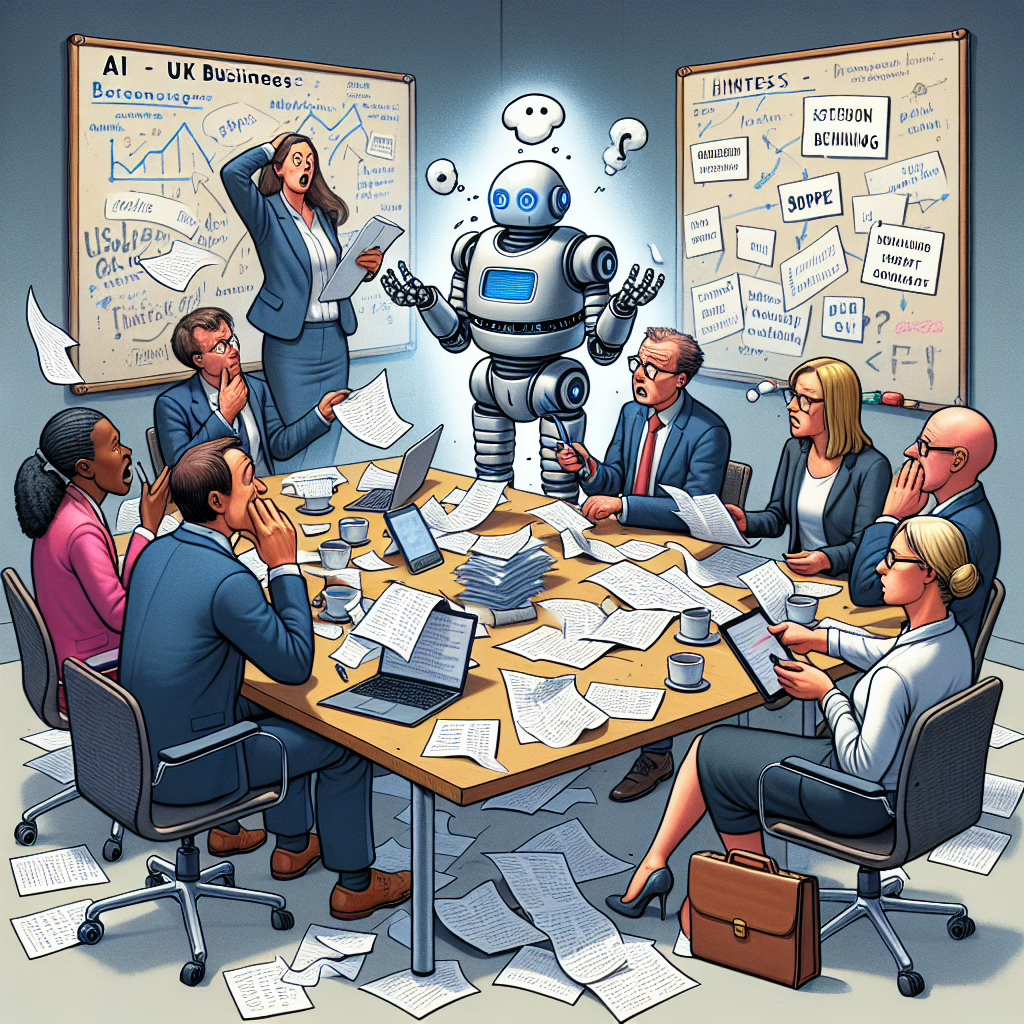In a surprising twist that could only happen in the wild world of business, it turns out that over half of UK businesses who decided to swap their human workforce for artificial intelligence are now having serious regrets. Yes, you heard that right! The decision to replace workers with AI seemed like a brilliant idea at first—who wouldn’t want a tireless, caffeine-free employee? But as the dust settled, many businesses found themselves questioning whether a robot could truly fill those irreplaceable human shoes.
Why Did They Make the Switch?
Let’s dive into the reasoning behind this audacious leap into the future. Businesses often view replacing workers with AI as a cost-saving measure. After all, robots don’t need lunch breaks, sick days, or even a paycheck (if we ignore maintenance costs). The allure of increased productivity and efficiency is hard to resist. However, many have found that this shiny new technology isn’t always the golden ticket it was cracked up to be.
The initial excitement around automation was fueled by promises of streamlined processes and improved bottom lines. Who wouldn’t want an employee that can work 24/7 without complaints? Yet, what many failed to foresee was the potential fallout from this tech-driven strategy.
The Reality Check
As companies began to replace workers with AI, they soon discovered that while machines can perform many tasks efficiently, they lack the human touch that makes workplaces truly vibrant. Communication breakdowns became routine; it’s hard to have a heart-to-heart with a chatbot. Misunderstandings escalated, projects stalled, and suddenly those cost savings didn’t seem so appealing anymore.
Moreover, customer service—a domain where empathy is crucial—took a significant hit. Customers are not just looking for answers; they crave connection. A friendly voice on the other end of the line can transform an ordinary interaction into an extraordinary experience. Unfortunately, many businesses found that their AI replacements were more adept at delivering robotic responses than heartfelt assistance, which is detrimental to brand loyalty.
Lessons Learned from Replacing Workers with AI
So what can we learn from this saga of regret? First off, let’s acknowledge that AI has its distinct role in modern business operations. It excels at managing repetitive tasks like data entry or scheduling. However, when it comes to responsibilities that require creativity, emotional intelligence, and those essential soft skills—let’s say that we might want to keep our human colleagues around.
Another key takeaway is the importance of striking a balance between automation and human input. Companies should consider blending AI capabilities with human ingenuity rather than opting for an all-or-nothing approach. This harmonious coexistence allows businesses to enjoy efficiency without sacrificing the human elements that make workplaces thrive.
Future Outlook: A Harmonious Coexistence?
The future may not be as bleak as it seems for those businesses currently regretting their decision to replace workers with AI. In fact, there’s hope on the horizon! Many organizations are now exploring hybrid models where humans and machines collaborate side by side. Picture this: an office where your AI assistant manages scheduling while you focus on brainstorming groundbreaking ideas over coffee breaks—sounds like a win-win!
Additionally, UK businesses are beginning to recognize the value of retraining employees to work alongside advanced technology rather than merely replacing them. Upskilling workers not only boosts morale but also enhances productivity in ways that no algorithm can replicate.
The Bottom Line: Embrace Technology Wisely
In conclusion, while replacing workers with AI may seem like a savvy strategy for cutting costs and boosting efficiency, it’s essential to remember that technology should complement human talent rather than replace it entirely. As we move forward into 2025 and beyond, embracing technology wisely will be pivotal in creating thriving workplaces where both humans and machines coexist harmoniously.
Now it’s your turn! What are your thoughts on this topic? Have you experienced any funny mishaps involving AI in your workplace? Share your stories in the comments below!
A big thank you to TechRadar for providing such insightful information about this quirky phenomenon! For further insights into AI impact on modern workplaces, check out our article on WhatsApp’s balance between AI and privacy.
Additionally, explore our coverage on LG’s wireless QNED technology as it’s an interesting case of how tech developments can influence workplace environments.

